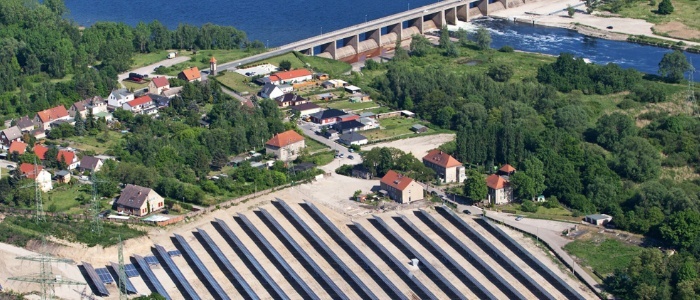Records are celebrated on the stock exchange and in sports competitions. When it comes to the climate, however, they cause consternation. As was the case in July: according to the World Meteorological Organization (WMO), last month was the warmest month ever recorded. “The data are a loud reminder to the world’s governments to significantly step up their efforts in switching to renewable energy”, comments Markus W. Voigt, CEO of the aream Group. “More needs to be done in Europe as well.”
It has never been as warm worldwide as it was in July. Already the first three weeks of the month broke the record of 2016, the WMO reported. The hottest day worldwide was 6th July, with an average of 17.08 degrees. Close behind were 5th July and 7th July. At least 17 July days surpassed the old record set on 13 August 2016 (16.8 degrees). “The era of global warming is over”, warned UN Secretary-General António Guterres. “The era of global boiling has begun.”
The average temperature in Germany in July was also 18.7 degrees, higher than in previous decades, the German Weather Service (DWD) reported after a preliminary analysis of the data. Overall, it was on average 1.8 degrees warmer than in the period 1961 to 1990 and 0.4 degrees warmer than between 1991 and 2020. True, July also brought unusually heavy precipitation. Overall, however, the DWD counted 230 hours of sunshine, 19 hours more than in the 1961 to 1990 period.
Nevertheless, the production of solar plants in Germany fell short of the target values. Target achievement in July was only 83 percent. “500 megawatts were lost due to the shutdown of the plant in Rotthalmünster”, explains Voigt. Another 400 MWh was lost due to a defective switchgear at the Weitgendorf plant. In Spain, on the other hand, 94 percent of the target value was achieved, despite slightly below-average sunshine hours and a loss of 160 MWh due to curtailment. Italy, on the other hand, reached its target value (99 percent), although irradiation remained relatively low.
“Technical outages are definitely to be expected from time to time during ongoing operation and are also calculated in the yield forecast”, Voigt said. “By contrast, curtailments are an indication of the continued sluggish adaptation of the entire energy industry to renewable energies. Grid expansion is too slow, regulations for electricity storage are pending, and the adaption of electricity consumers to a changing power supply is still in its infancy.”
Wind turbines in Germany delivered excellent results in July with high wind levels: the target value was exceeded by almost a quarter. “At the same time, technical failures reduced the yields even more”, explains Voigt. One plant is at a standstill due to generator bearing damage, which cost 750 MWh in July. The plant is not expected to come back online until the end of August.
The federal government had skimmed off parts of the earnings of electricity producers from December 2022 onwards, in order to use the money to reduce consumers’ energy costs. However, that skimming expired at the end of June. “For the current year, there are thus no skimmings pending for us”, Voigt said.
PRESSEKONTAKT:
Leandra Kiebach
T: +49 (0)211 30 20 60 4-2
E: lk@aream.de


